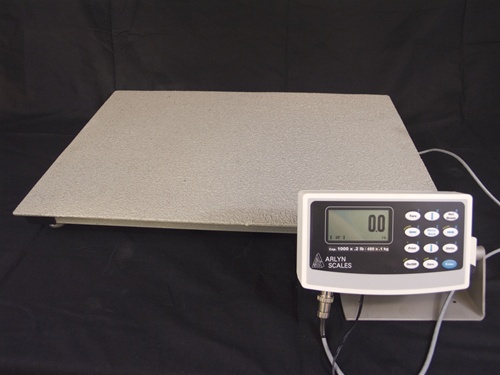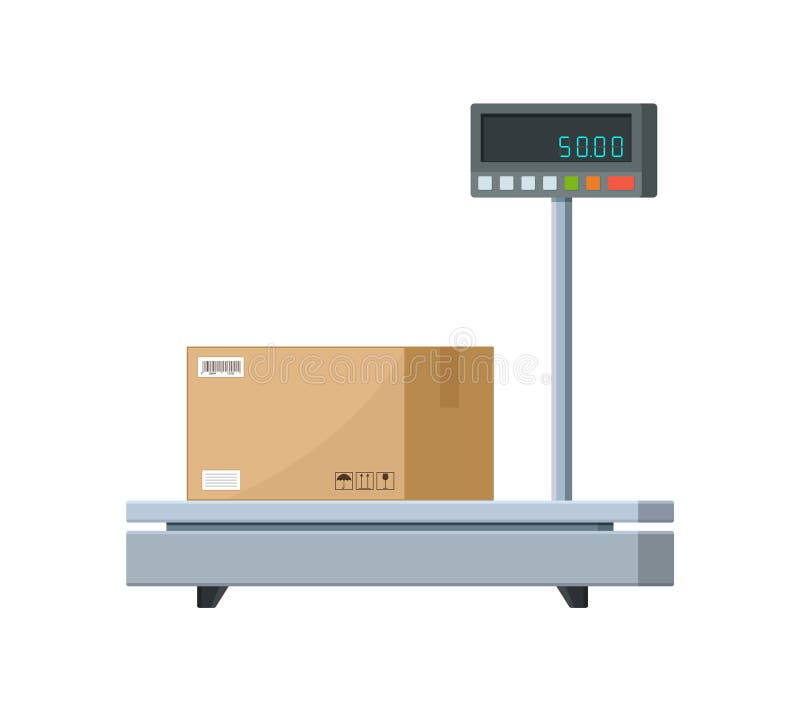How Industrial Scales Work: An Extensive Summary for New Users
Understanding the technicians behind commercial scales is crucial for new users that desire to ensure precision in their measurements. As we explore these parts, one should consider how these elements interact to boost efficiency in diverse industrial applications.
Essentials of Industrial Scales
Industrial scales are essential devices utilized throughout numerous markets, including manufacturing, logistics, and farming, to make sure accurate weight dimensions of hefty loads. The basic concept behind commercial scales entails the conversion of weight right into a measurable kind that can be displayed electronically or analogically. These scales utilize various systems, such as load cells or mechanical levers, to establish the weight of items positioned upon them.

In enhancement to their dimension abilities, industrial scales are developed to endure severe environments, featuring durable building and construction that stands up to dirt, wetness, and heavy effects. Calibration and maintenance are important to ensure precision, as even small inconsistencies can cause considerable financial implications. By recognizing the essentials of commercial scales, users can value their value in different industrial applications.
Kinds of Industrial Scales
Numerous kinds of commercial ranges cater to the diverse needs of various markets, each developed to handle details evaluating tasks with accuracy and dependability. Amongst one of the most common kinds are floor scales, which are excellent for considering large and heavy things. These ranges normally feature large systems and can accommodate palletized items, making them essential in warehouses and delivery facilities.
Another type is bench ranges, which are frequently utilized for smaller sized items in manufacturing and retail setups. They give precise dimensions for products that call for precision, such as chemicals or components in setting up lines (Industrial Scales). For mobile operations, mobile ranges provide flexibility and convenience of transportation, appropriate for fieldwork or momentary installments
In applications needing high-capacity dimensions, such as wholesale material handling, crane scales and tons cells are utilized. These ranges can gauge lots put on hold from a crane or other lifting device, making certain security and precision during operations. In addition, specialized scales like checkweighers are made use of in manufacturing lines to maintain quality assurance by guaranteeing that products fulfill weight requirements. Each kind of commercial scale plays a crucial function in improving functional effectiveness and precision across different sectors.
Exactly How Evaluating Systems Work
Considering systems are crucial components that enable accurate measurement of mass across different commercial ranges. These mechanisms make use of numerous concepts of physics and engineering to provide specific weight readings, important for inventory monitoring, high quality control, and compliance with governing requirements.
One common kind of considering system is the load cell, which operates on the principle of strain gauges. When a load is used, the lots cell warps slightly, creating an electrical signal symmetrical to the weight. This signal is then transformed into a readable weight dimension by the scale's electronic devices.
Another extensively used mechanism is the mechanical balance, which uses a system of weights and bars. Industrial Scales. This technique relies upon the concept of balance, where the weight of the things being determined is stabilized against understood weights, permitting straight dimension
Furthermore, hydraulic and pneumatically-driven scales utilize fluid dynamics concepts to measure weight. These systems utilize the stress redirected here exerted by a tons to determine weight, using high precision for enormous loads.
Correct Usage Methods
When making use of industrial scales, sticking to correct usage methods is critical for keeping and guaranteeing precise dimensions tools integrity. It is vital to choose the ideal range for your specific application, as scales vary in capacity and precision.
Prior to weighing, guarantee that the scale is put on a steady, degree surface area devoid of disruptions or resonances. This will certainly aid to decrease mistakes brought on by exterior variables. Furthermore, adjust the range according to the maker's specs before utilize, guaranteeing that it is working appropriately.
When placing items on the range, disperse the weight uniformly to stay clear of tipping or damaging the tools. Always allow the range to stabilize before taping the weight, as fluctuations may take place throughout preliminary positioning. For bulk materials, utilize containers that are appropriate for the range dimension to stop overloading.
Additionally, avoid putting cold or extremely warm products directly on the click this link scale, as temperature level variants can affect precision. Lastly, maintain the evaluating system free and clean of debris to avoid contamination and make sure trusted results. By complying with these strategies, individuals can make best use of the performance and longevity of their commercial ranges.
Maintenance and Calibration Tips
Making sure the longevity and precision of commercial scales calls for persistent upkeep and regular calibration. A preventative maintenance timetable is important; it must include regular inspections to determine damage, particularly on tons cells and various other sensitive parts. Consistently cleaning up the range's surface and guaranteeing the bordering area is without particles will assist preserve its stability and performance.
Calibration is just as vital and need to be performed at routine periods or whenever the scale experiences considerable changes in temperature, humidity, or physical displacement. Use qualified calibration weights that are traceable to national requirements for precision. Record each calibration session meticulously to track performance in time and determine any type of fads or reoccuring issues.
Additionally, bear in mind the scale's atmosphere. Avoid putting it near top article resources of vibration, electromagnetic interference, or extreme temperatures, as these elements can negatively impact measurements. Train all operators on proper scale usage and maintenance protocols to ensure consistent efficiency and precision. By sticking to these maintenance and calibration suggestions, users can enhance the integrity of their industrial scales, making sure optimal operation in any kind of setup.
Conclusion

Comprehending the technicians behind commercial ranges is critical for brand-new customers that desire to make certain accuracy in their dimensions.Industrial scales are necessary tools utilized throughout different fields, consisting of manufacturing, logistics, and farming, to guarantee exact weight measurements of hefty loads. The basic principle behind industrial scales involves the conversion of weight into a measurable form that can be presented electronically or analogically. By recognizing the essentials of industrial scales, customers can value their value in different industrial applications.
In verdict, understanding the operation and maintenance of commercial ranges is essential for making certain accurate weight measurements in numerous applications. (Industrial Scales)